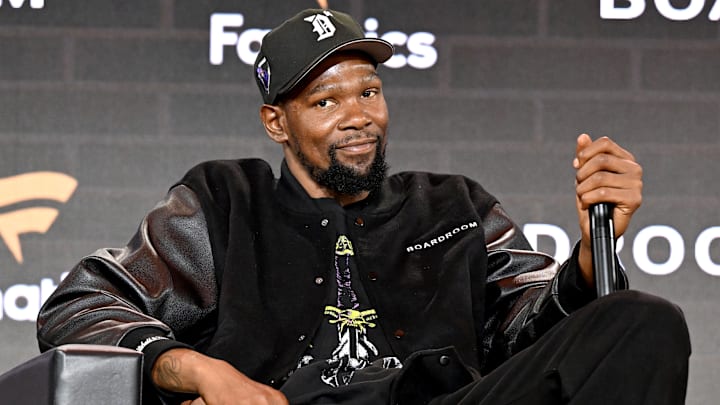Many assumed Kevin Durant would quickly sign an extension after the Houston Rockets acquired him from the Phoenix Suns. More than one month later, though, we’ve heard nothing but crickets.
This could be seen as a bad thing. It’s not. If anything, it’s the exact opposite, because it implies that the Rockets are doing something so many others in their situation wouldn’t do: actually negotiating.
And if they’re actually negotiating, it increases the chances that they get to lock down Durant on a sub-max deal that enables them to make fewer tough roster decisions moving forward.
If Kevin Durant were getting the max, an extension would be done by now
Assuming the salary cap rises by 7 percent again, Houston can sign Durant to a two-year extension worth up to $118.7 million. After seeing other marquee players get big-money deals, the soon-to-be 37-year-old may want every cent for which he’s eligible.
Yet, if this were the case, a deal would be done by now. There’d be no reason to wait, other than the Rockets wanting to announce the extension in tandem with KD’s introductory press conference, which has yet to be held.
Don’t bother noting that he can sign for more money after six months on the team, either. The difference is too negligible. Durant’s max extension in January would be two years, $120.5 million. That’s not even a $2 million gap.
The Rockets have a history of negotiating with their players
Houston’s track record in these situations also lends itself to a team-friendly spin. Look at what the front office just did with the extension for Jabari Smith Jr. Not only is $122 million an ultra-specific number, but the deal does not include a player option, and will actually have his salary decline from Year 1 to Year 2.
The Rockets pulled out similar stops with Alperen Sengun last summer. His five-year, $185 million pact includes a player option on the final season, but he arguably had the leverage to command more money. A max deal would have run $224.2 million. Sengun received noticeably less, and Houston also negotiated a flat rate for Years 4 and 5.
These macro stipulations and finer details matter. They are all done in service of allowing the Rockets to retain as much of their young core as possible in the years to come.
Don’t expect the Kevin Durant extension to be any different
There is no reason to think Houston will change its ways now with Durant. Yes, it is to some extent pot committed after giving up Jalen Green, Dillon Brooks, the No. 10 pick (Khaman Maluach), and second-round equity to get him. But this trade doesn’t go down without intel on what KD wants and is willing to accept in an extension.
Even if the Rockets entered into this marriage blindly, attempting to negotiate remains the shrewd move. They have too much at stake beyond Durant’s timeline to pay him the max without thinking twice. If he doesn’t sign an extension, they’ll have the inside track on keeping him next summer. And if he does leave, well, the price they paid to get him is reasonable enough that they’d still be fine.
Which isn’t to say this situation will come to that. It won’t. The most likely outcome remains KD signing an extension worth materially less than the max. And oddly enough, the absence of an agreement so far only reinforces as much.
